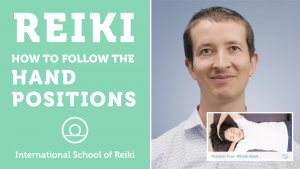On the spiritual journey we meet things inside ourselves that we want to change. Let’s take the example of needing to feel in control, which is something I face in my own life. Before we explore this issue, ask yourself what things you want to change about yourself.
To simplify the situation a bit, we can say that there are two main ways to deal with a psychological issue. The first is to fight it on its own terms. When battling the need to feel in control, whenever you notice yourself trying to control the situation or other people, you come down on yourself hard: here I am trying to control everything again; this is wrong, I need to change! I must make sure that I hide this from other people so that they don’t see my weakness. I will get better and better at controlling this need for control until it’s all perfectly resolved.
This is just like fighting fire with fire, because it’s becoming more controlling in order to become less controlling. Similarly, if your issue is anger then you become angry at yourself, and if your issue is deception then you hide the issue from yourself. This kind of approach is very unlikely to be successful at anything but superficial change. It’s because there is a deeply rooted psychological issue at play that we don’t deal with ourselves in the most efficient and intelligent way.
The alternative is to understand what the polar opposite of your issue is and to nurture that. This table from the level two course shows how each of the chakras has both light and shadow aspects:
| Chakra | Positive Aspects | Negative Aspects |
| 7 | Awareness, Emptiness | Ignorance, Attachment |
| 6 | Intuition, Self-Reflection | Poor vision, Denial |
| 5 | Truth, Expression | Deception, Restriction |
| 4 | Calmness, Balance | Anxiety, Jealousy |
| 3 | Compassion, Acceptance | Hatred, Rejection |
| 2 | Movement, Action | Apathy, Indifference |
| 1 | Freedom, Generosity | Fear, Grasping |
This table is not a complete list of all issues, and the issue of needing to feel in control doesn’t show up, so we need to analyse which chakras are most relevant. Excessive control would probably be found in the third chakra, which is linked to issues of power and will, though it could also arise as a response to fear, which is a first chakra issue. What are the opposites? Compassion (here this needs to directed at the self), acceptance (of the self and others), and freedom and generosity.
In dealing with powerful issues and emotions, instead of focusing on what we don’t want, we respond with a sidestep. When the need for control arises, we focus on those positive issues: first acceptance of the self with all its issues, which is then extended outwards to other people and the situation that is making us feel uneasy. If possible we practice generosity too, which undermines the root cause of fear. By regularly focusing on strengthening these things in ourselves, we reduce the likelihood of the shadow re-emerging. And when it does, we know how to deal with it.

